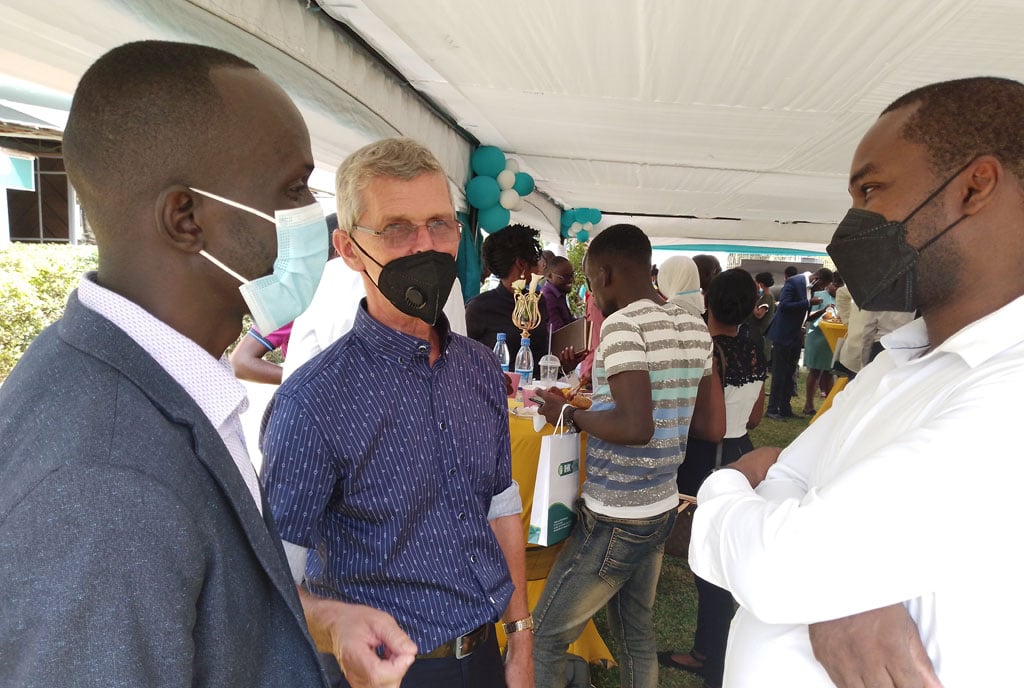Malaria is a silent health emergency that requires a societal response

Grace Muliisa
What you need to know:
- For children and expecting mothers in particular, it is a dangerous time to fall sick with malaria in view of recent disruptions caused by Covid-19 and reduction in funding amidst increasing malaria cases. In 2020, Africa accounted for 602,000 or 96 percent of malaria deaths globally, and 80 percent of these deaths were of children aged under 5 years.
At Ecobank we have noted with grave concern that despite remarkable progress in the past 20 years, malaria remains a leading cause of ill-health and death in Sub Saharan Africa, where only six countries – including Uganda in third place – account for over half of all malaria cases globally.[i] According to the Ministry of Health in Uganda, malaria accounts for 30-50 percent of outpatient visits at health facilities, 15-20 percent of all hospital admissions, and up to 20percent of all hospital deaths.
We are launching the Zero Malaria Business Leadership Initiative.
For children and expecting mothers in particular, it is a dangerous time to fall sick with malaria in view of recent disruptions caused by Covid-19 and reduction in funding amidst increasing malaria cases. In 2020, Africa accounted for 602,000 or 96 percent of malaria deaths globally, and 80 percent of these deaths were of children aged under 5 years. The same year, 34 percent (or 11.6 million) of expecting mothers in Africa suffered from malaria, resulting in 819,000 children born with low birthweight. Children are at particularly high risk due to undeveloped immunity while expecting mothers have decreased immunity.[iii] Malaria in pregnancy is a major public health problem. It is the leading cause of anaemia during this period and a cause of ill-health for babies. In Uganda, 10 percent of children are born with low birth weight, which is a major determinant of poor health and death among infants, and developmental disabilities and illnesses later in life.
Malaria is more than just a health issue. It is also a socio-economic issue affecting us all in one way or another, including business productivity, educational attainment and family disposable income. For example, Africa loses 4.3 billion workdays and 1.5 billion school days due to malaria annually. A single episode of malaria costs a family on average $9, or 3 percent of the annual income, and a person suffering from malaria can lose 1-3 weeks of work per episode.[vii] The World Bank estimates that 100 million people are pushed into poverty due to catastrophic health expenditures such as this.[viii]
Malaria, thus, has a wide-ranging impact on many sectors of society. It is for this reason that we call on all to join the movement for malaria elimination. As one of the oldest and most pernicious diseases on the planet, malaria requires a whole-of-society approach and cannot be solely the burden of the Ministry of Health.
ALSO READ: Malaria cases increase by 42 percent
Unfortunately, unlike modern outbreaks such as Ebola and Covid-19 which attract global attention, the age-old malaria continues to quietly decimate our people with limited attention. It is, thus, a silent health emergency, one that we all too often overlook because we have grown up with it yet it continues to kill our own.
Private sector companies have a particularly important role to play as stakeholders in an economy that is deeply affected by malaria. But more importantly, the private sector can leverage its corporate social responsibility and marketing resources to support the malaria fight. There is scope for win-win results here through innovation and public-private partnerships that both boost companies’ visibility and brand awareness and serve to reduce the grave malaria burden inflicted on our communities. The Ministry of Health’s Uganda Malaria Reduction and Elimination Strategic Plan (UMRESP 2021-2025) provides very well-streamlined non-medical intervention areas that can be optimised for private sector Corporate Social Responsibility to serve this purpose.
The Zero Malaria Business Leadership Initiative aims at mobilising private sector participation for malaria control and elimination. The initiative is being implemented under the framework of Malaria-Free Uganda and the National Malaria Control Division of the Ministry of Health.
DON'T MISS: Fight against malaria needs concerted effort
To this end, I am honoured to join the Malaria-Free Uganda board and pledge my personal commitment as a champion of the fight against malaria. I call on all companies, large and small, to join us so that together we can take our country, and continent, to a prosperous, malaria-free future.
Ms Grace Muliisa is the Managing Director of Ecobank Uganda




